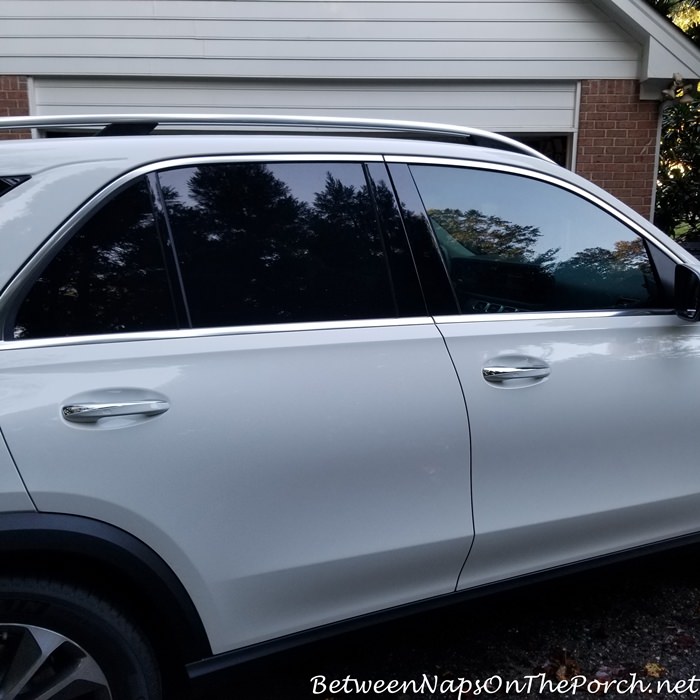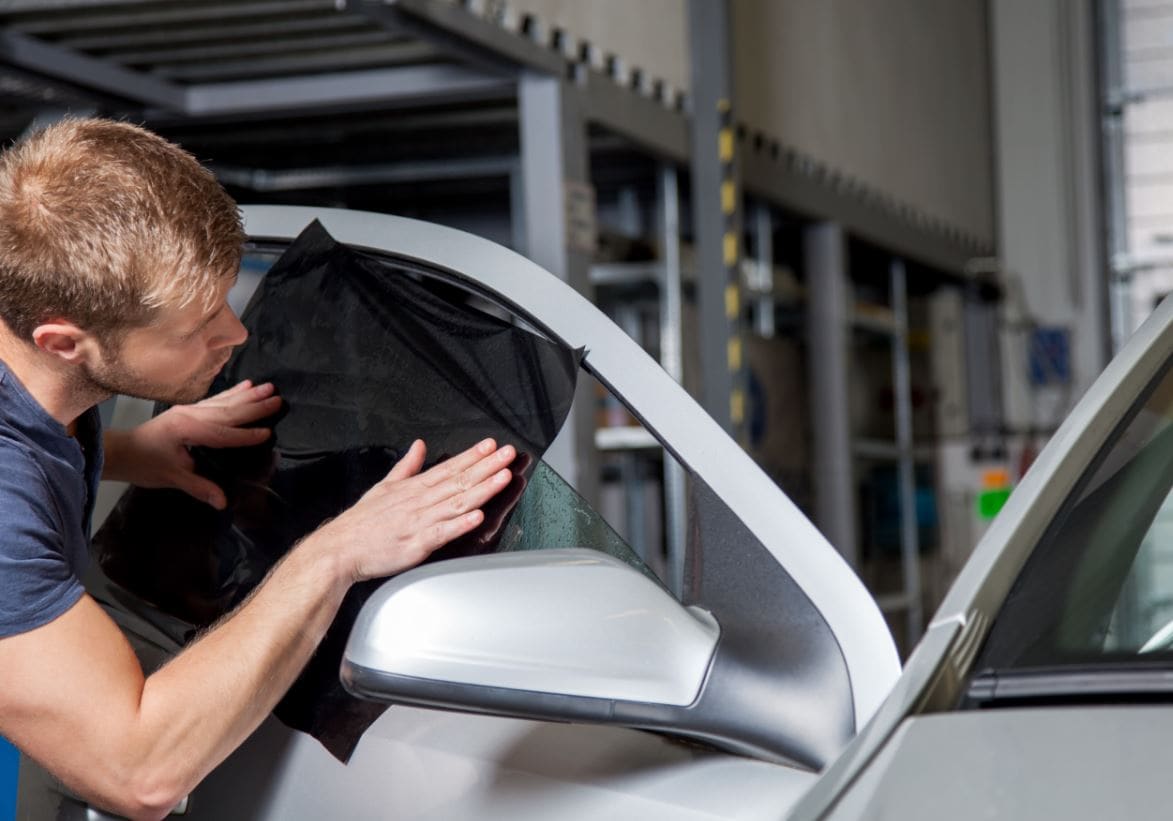Leading Window Tinting Clovis Services for Enhanced Privacy and Style
Leading Window Tinting Clovis Services for Enhanced Privacy and Style
Blog Article
Checking Out the Various Types of Home Window Tinting: A Comprehensive Introduction for Automobile Owners
In the realm of vehicle enhancements, home window tinting stands out as a functional option for lorry proprietors aiming to improve comfort and appearances while supplying essential security (window tinting clovis). Recognizing the legal laws governing tinting in different territories adds one more layer of intricacy to the decision-making process.
Benefits of Home Window Tinting
Home window tinting provides a myriad of advantages that enhance both the aesthetic allure and functionality of automobiles. Among the primary advantages is the decrease of harmful ultraviolet (UV) rays, which can result in skin damages and raise the risk of skin cancer. By obstructing approximately 99% of UV radiation, tinted windows supply essential protection for travelers throughout daily commutes or long journeys.
Furthermore, home window tinting significantly enhances indoor convenience by lowering glow and heat buildup. This not only creates a much more positive driving experience but also minimizes the reliance on cooling, resulting in fuel financial savings. Boosted personal privacy is an additional essential advantage; colored home windows obscure the sight right into the lorry, safeguarding individual valuables and making certain a sense of security for occupants.
Additionally, window tinting can extend the lifespan of an automobile's interior by minimizing sun damage, such as fading and breaking of upholstery. Finally, many territories identify the aesthetic value of colored home windows, which can elevate a vehicle's total look and resale value. In recap, the diverse benefits of home window tinting make it an important financial investment for automobile owners looking for to improve style, safety and security, and comfort.
Kinds of Window Tint Films
A selection of window color films are readily available on the market, each designed to fulfill different demands and preferences. One of the most common types consist of dyed, metalized, ceramic, and crossbreed films.
Colored movies are preferred for their aesthetic appeal, as they provide a darker tint without showing light. Metalized movies, on the various other hand, have metal particles that reflect heat and UV rays, enhancing sturdiness and efficiency.
Ceramic movies stand for a premium choice, using remarkable warmth denial and UV defense without the downsides of reflectivity. These movies are non-conductive and do not impact digital gadgets, making them a preferred option among automobile owners seeking high performance. Crossbreed films incorporate the advantages of colored and metalized films, using a balance between price and efficiency.
Selecting the right film depends on individual top priorities such as warm being rejected, appearances, and spending plan. Comprehending the attributes of each type can lead lorry owners in making informed choices that line up with their particular demands and choices.

Legal Laws on Tints
Lawful laws on home window tinting differ significantly across different regions, showing regional legislations and security requirements targeted at making sure vehicle driver presence and safety and security. In the USA, for circumstances, each state has its very own collection of policies controling the permitted degrees of color darkness, normally determined by Visible Light Transmission (VLT) portions. While some states enable darker tints for rear home windows, others enforce more stringent limitations on front side windows and windshields.
Worldwide, laws can vary also a lot more considerably (window tinting clovis). Nations may impose complete restrictions on tinting or limit it to lighter shades. In the European Union, the front windscreen should allow at the very least 75% of light to pass through, while the front side home windows should allow at least 70%.
Conformity with these policies is essential, as failing to adhere can result in penalties, compulsory removal of non-compliant colors, or even vehicle examinations. Car proprietors must familiarize themselves with their regional laws prior to applying window tinting. Consulting with professionals and examining state or national standards can help make sure that any selected tint abide by legal requirements, ultimately improving both safety and security and looks.
Installation Refine and Considerations
When taking into consideration the installation of home window tinting for vehicles, a number of vital elements have to be taken into consideration to make certain a successful result. Picking the right type of tint is critical, as various materials use various degrees of heat rejection, UV security, and visual appeal. In addition, it's important to check local regulations relating to color darkness and reflectivity to remain compliant with the regulation.
The installment process itself can be executed do it yourself or by a specialist. While do it yourself packages are readily available, professional installation is commonly advised for optimum outcomes. Specialists have the needed abilities, devices, and experience to make sure a perfect application, which lessens the danger of bubbles, creases, or peeling.
Prior to setup, the car's windows must be completely cleaned and dried out to prevent impurities from interfering with the adhesive. click here to read By considering these variables, car owners can boost their driving experience while making sure the longevity and performance of their window color.
Maintenance and Care Tips
Correct maintenance and treatment are crucial for preserving the appearance and functionality of home window tinting after setup. To guarantee longevity, lorry proprietors ought to wait at the very least 2 days before rolling down their windows, enabling the adhesive to cure correctly. Normal cleaning is necessary; nonetheless, it is necessary to make use of mild, ammonia-free remedies and soft microfiber cloths to prevent scraping the tint.
When washing your automobile, stay clear of high-pressure water sprays directly on the tinted home windows, as this can compromise the sticky with time. Instead, utilize a wet cloth to clean the surface delicately. Furthermore, avoid making use of abrasive products, such as harsh sponges or brushes, which can damage the tint.
Check your home window tint periodically for indications of gurgling, peeling off, or staining. If any kind of issues are found, consult a professional to identify whether substitutes or fixings are necessary. Additionally, car parking in shaded locations or utilizing sunshades can view publisher site better safeguard your color from long term sunlight direct exposure, which can bring about fading.
Conclusion
In summary, understanding the different kinds of window tinting is critical for car owners intending to boost comfort, visual appeals, and defense. Appropriate installment and maintenance better guarantee optimum performance and durability of the color.
In summary, the complex benefits of window tinting make it a beneficial investment for automobile proprietors seeking to improve safety, comfort, and design.
Legal guidelines on home window tinting vary dramatically across different areas, mirroring local legislations and safety and security standards aimed at making sure vehicle driver presence and safety. While some states enable darker tints for rear visit homepage home windows, others impose stricter restrictions on front side windows and windshields.

Report this page